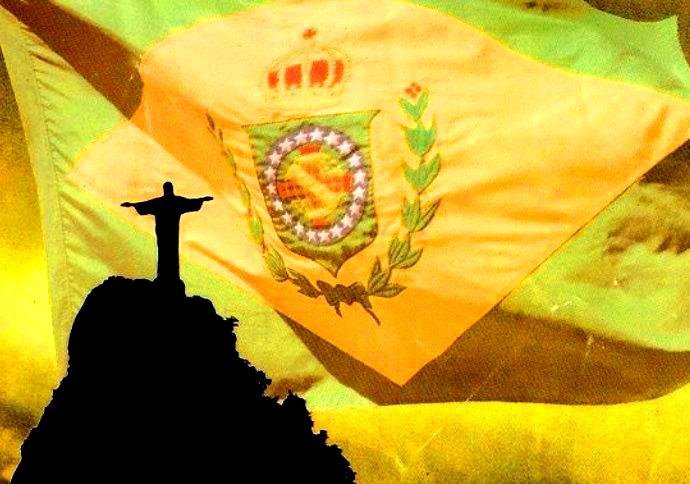Importantíssimo a leitura deste artigo compartilhado no facebook pelo amigo Joanisval.Escrito após muito estudo originado no comparativo de gastos entre a República e a Monarquia, podemos chegar a conclusão de que o custo para manter um Rei ou uma Rainha é bem menor do que manter um presidente ou presidenta.
Think a republic would be cheaper than Monarchy? Think again!

To start this, I should prefix this with some background and also an explanation as to how I came to the following figures in this report. Firstly, this article was a long time coming. For some time now it’s been widely asserted that a republic would be a cheaper alternative to the Monarchy, to the point where fewer people seem to be willing to challenge it. This article acts as both a reference guide to Monarchists trying to prove the point that, actually, republics aren’t inherently cheaper (but Monarchies are better value for money) and also a full explanation of my case to any republicans who decide to read through this piece.
The figures I reference in this report have been researched through what are reputable and reliable sources. Some are translated from their original language (hence some of the links lead to a Google translate page, for reference) and some are embedded in reports (I’ve done my best to try and signal where). But there’s no trickery going on here, I promise, the figures are accurate and my calculations are – to my certain knowledge – sound.
And without further or-do, I begin…
In this past year, the British Monarchy cost taxpayers £35.7 million. That represents a cost of 56 pence per person in the United Kingdom. The money, taken in taxes from the treasury, though pegged to the value of the Crown Estates (it’s complicated), covers the state expenditure of The Queen and her public role, including the maintenance of palaces (held in trust for the nation), the cost of performing over 400 engagements annually (travelling around the United Kingdom and affording recognition to local communities and other work), holding national celebrations (drawing millions of people together in celebration) and hosting receptions, garden parties, lunches and audiences to honour achievement and grant recognition.
Incidentally, the cost incurred by the public does not include engagements carried out by other members of the Royal Family (other than The Queen and Duke of Edinburgh), which is met through The Queen’s personal income from the Duchy of Lancaster (and it is her personal, private income). Oh, and The Queen doesn’t get a salary either.
All of the above considered, you might now be thinking we could do away with all this and slash our costs? Think again.
Fortunately, we don’t have to go far across to the continent to get a fair comparison on cost with a republican model. The President of France, whose role is very similar to that of Her Majesty,cost French taxpayers a whopping £91 million. For the privilege of paying almost three times as much as the UK, France gets to forgo the pageantry and ceremonies, engagements and grand receptions that come with Monarchy, and they get a politician too.
The total cost works out at £1.43 per person in France. Still a good deal?
little further south and we find the Italian Republic. Its president performs almost exactly the same constitutional function as The Queen, bar a few political powers, yet amazingly costs Italian taxpayers £181.5m per year! That’s £3.08 for every Italian! Yet again, no pageantry, no state celebrations and no apolitical, uniting national figure in their leader either!
At this point, it’s worth drawing a distinction between executive and non-executive presidencies. The former is effectively both the Prime Minister and President, the latter means there is a distinction between the office of president (usually ceremonial) and that of Prime Minister (runs the country as head of the government). A non-executive presidency is most similar to Constitutional Monarchy, so I’ve endeavoured to use them as examples.
Coming in almost identical in cost with the British Monarchy is the Polish presidency, costing Polish taxpayers £34 million per year. Giving extra consideration to the smaller population of Poland and comparing once again to the British Monarchy, costing a fraction more, it’s clear where the value for money lies once again.
The final of my examples is the German presidency, costing Germans at the least £30.8m (this includes £4.8m given annually to the nation’s 5 retired presidents).
Additionally, if one were to go down the route of an executive president, the figures can reach eye-watering sums, with the estimated cost of the American presidency reportedly going into billions, it’s no surprise this is the model British republicans try to distance themselves from.
Judging by these figures it appears that some of the most similar countries to the UK are actually paying all the costs they would for a Monarchy (and then some), without actually having the colour, spectacle and other benefits that comes with one! Indeed, there is a fascination with the British Monarchy in many republics around the world. 9.9m German tuning into the Royal Wedding in 2011 is just one example of this, yet they still pay over £30m for their own presidency (which, interestingly, there’s a push by some to abolish).
There’s one other benefit of Monarchy that a country enjoys too, and it’s one republicans will dismiss at the first opportunity. That’s its economic benefit. They would of course say there isn’t one. I’m telling you, however, as a matter of fact, that there is. For the following, I’ve carefully selected my evidence, owing to republicans’ insatiable desire to point out that a lot of the documentary evidence about the economic benefit of Monarchy are predictions rather than post-event measurements.
The birth of Prince George, a new future heir to the throne, back in 2013 was a cause for great national celebration. It was also a cause for great economic celebration as the birth of the Prince caused an extra £247m to be injected into the economy from everything from royal baby themed merchandise to extra consumption of food and alcohol to celebrate the occasion.
Now, assuming that President Hollande of France isn’t suddenly thrust into the spotlight of fame with a wedding that captures the public’s imagination, it’s fairly reasonable to assume there’s virtually no economic benefit to having a presidency.
As a closing thought, I’ll point out that this article isn’t a list of the benefits of Monarchy. That might come in a later edition. Rather, this is a response to a long-running republican line, which I very much hope you’ve found informative.
If you have any questions or challenges to the contents above, leave them in the comments box below.

